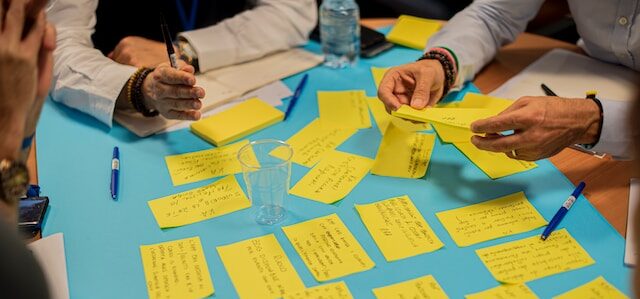In this presentation at the AESOP (Assosiation of European Schools of Planning) annual Congress in 2022, Laura Mark, Katharina Huseljić and Tobias Escher introduced a framework of distributive socio-spatial justice and the way consultation procedures can contribute, before evaluating the case study Elbchaussee in Hamburg regarding socio-spatial justice, using qualitative and quantitative results.
Abstract
Our current transport system exhibits significant socio-spatial injustices as it has both major negative environmental effects and structurally disadvantages certain socio-economic groups. Planning processes increasingly include elements of public participation, often linked to the hope of better understanding and integrating different mobility needs into the planning process. However, so far there is little knowledge on whether public participation results indeed in more socio-spatial justice.
To approach this question, we focus on socio-spatial justice as distributive justice and investigate how well consultative planning procedures do actually lead to measures that both contribute to sustainability (i.e. reduce or redistribute negative external effects) and cater for the needs of disadvantaged groups (e.g. those with low income or education, women and disabled people). To this end, we have investigated in detail the case study of the reconstruction of the Elbchaussee, a representative main road of citywide importance in the district of Altona in Hamburg, Germany. We are drawing on both qualitative and quantitative data including expert interviews and public surveys.
We first show that the process did result in planning measures that contribute slightly to ecological sustainability. Second, in particular through improving the situation for pedestrians and cyclists as well as the quality of stay, the measures should contribute to more justice for some groups but this is recognized only by non-male groups. Beyond this there are no effects for people with low income, low education, those with mobility restrictions or with particular mobility needs often associated with these groups. Overall, we conclude that the consultative planning process provides only a small contribution to socio-spatial justice and we discuss potential explanations.
Key Findings
- The consultative planning process as a whole resulted in measures that contribute slightly to socio-spatial justice, since they support the transition to more sustainable mobility and will benefit some disadvantages groups, though both to a limited degree.
- We find that the consultation procedure had no significant influence on the policy. In terms of socio-spatial justice, no positive effects can be traced back to the consultation procedure. Notably, those that participated in the consultation did indeed report less satisfaction with the measures.
- We trace those limited contributions back to some general features of consultation and the current planning system, but also find that in the case study the scope of possible influence was very limited due to external restrictions and power imbalances.
Publication
We are working on a publication for a peer-reviewed journal. The publication will be linked here as soon as it is published.



